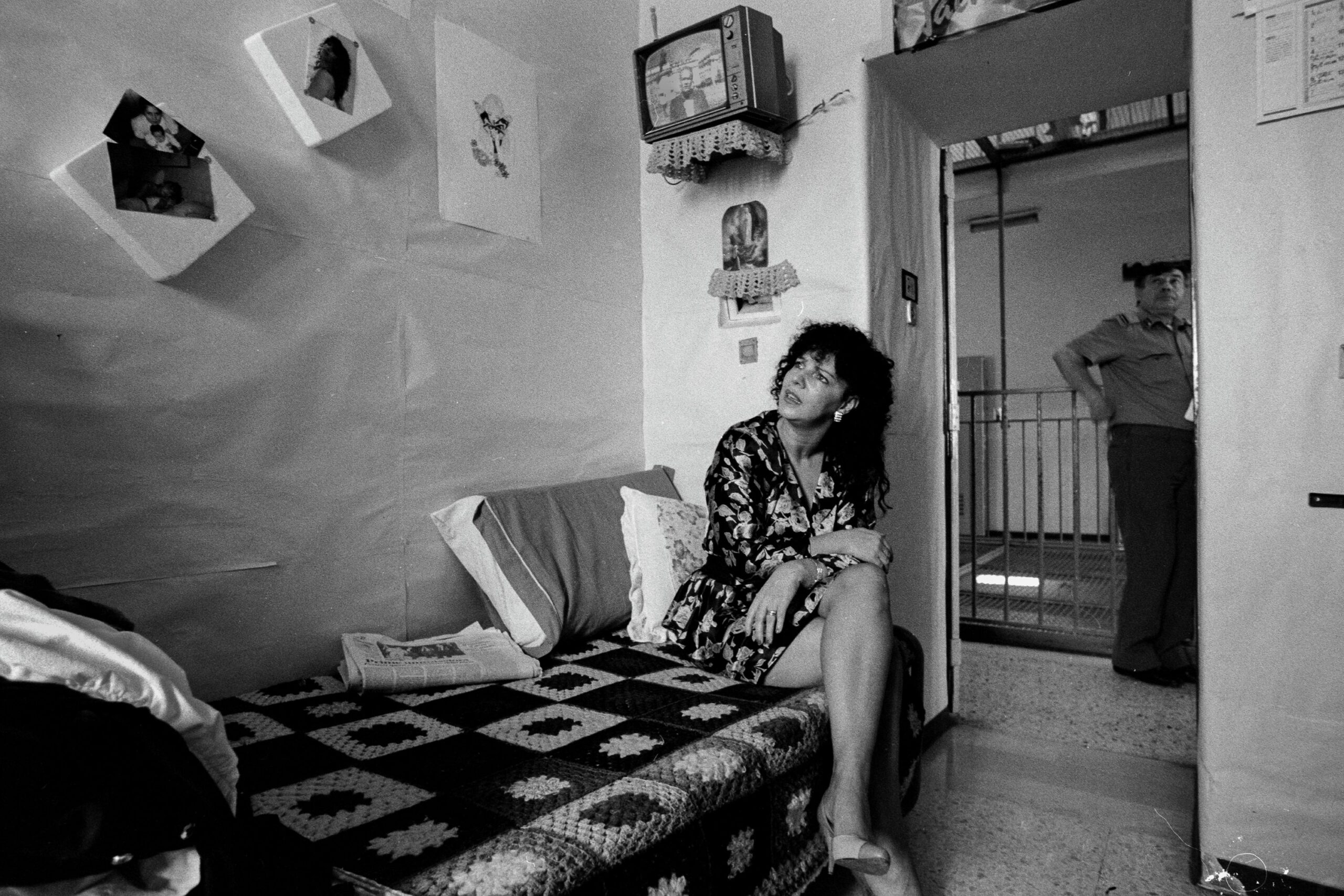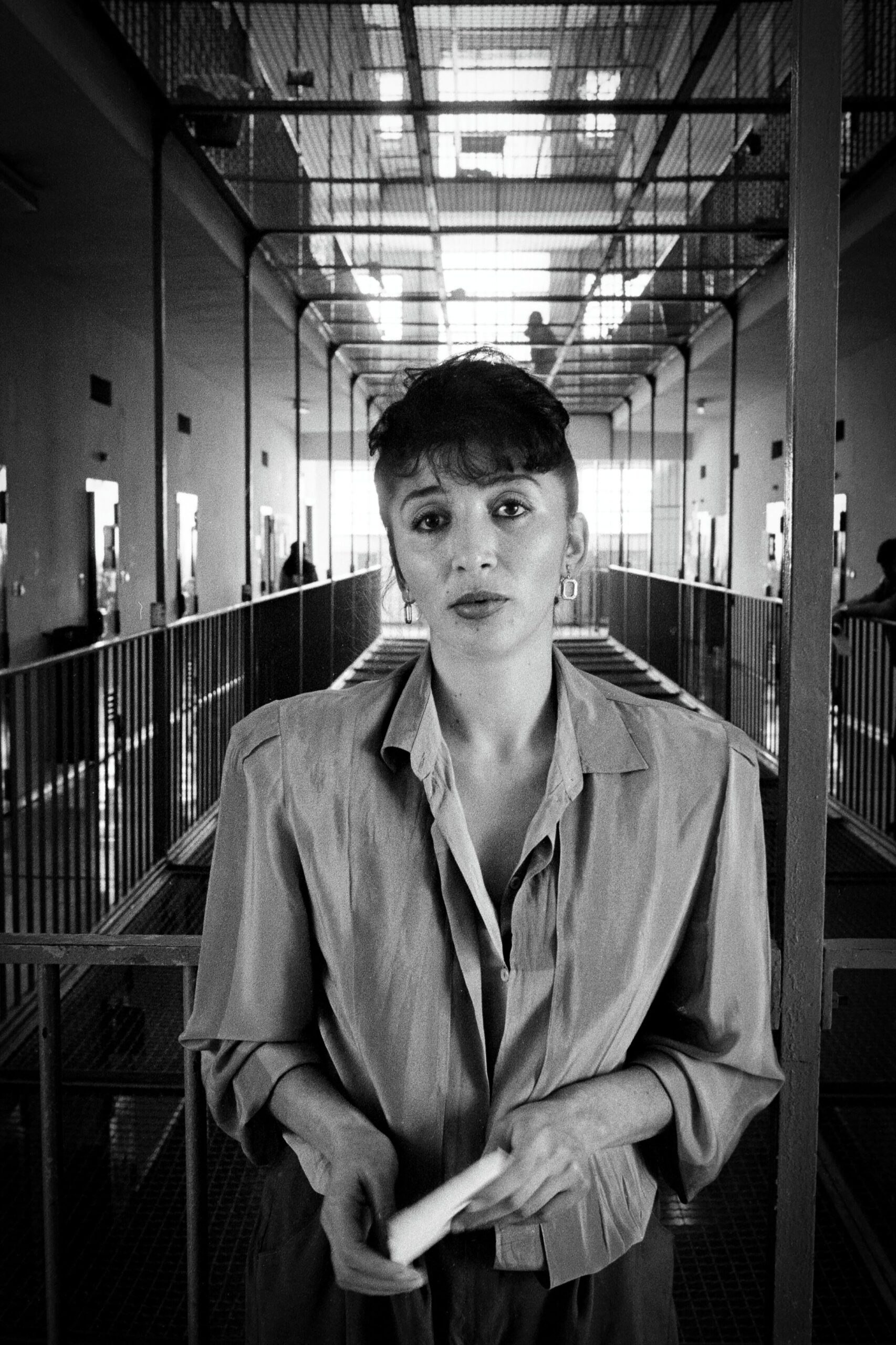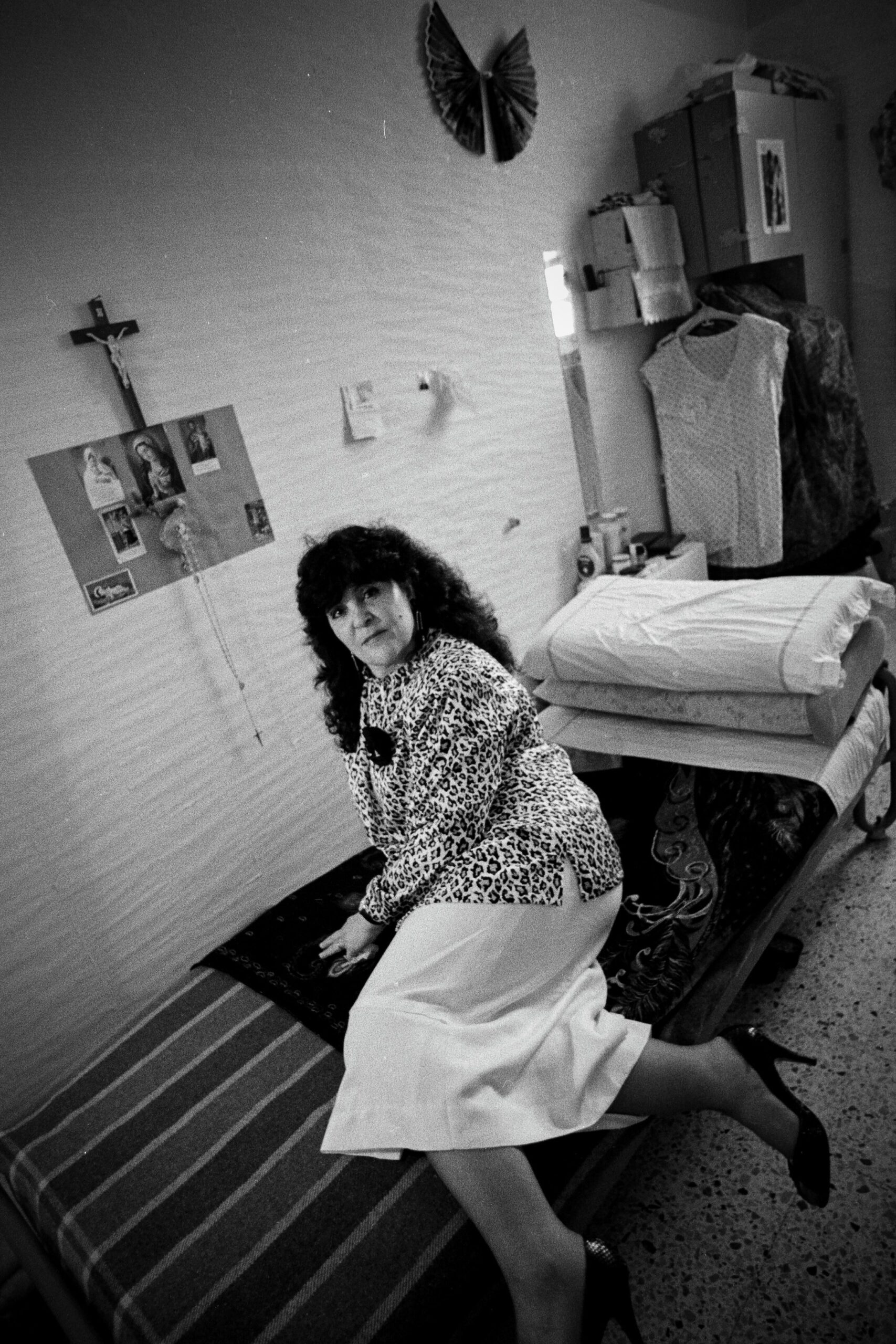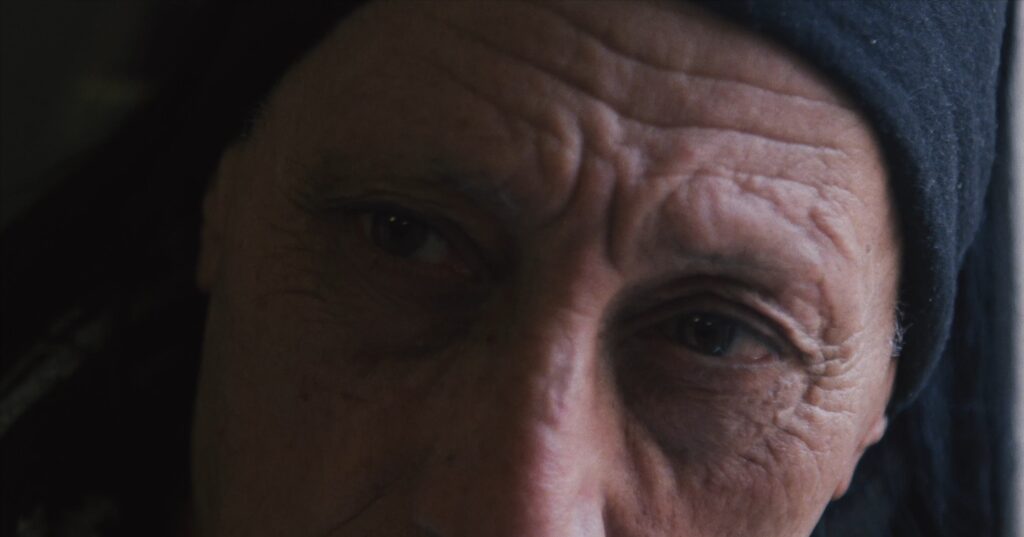“No Flowers for the Brides.”

Isabella De Silvestro on the story of Tiziana.
As it happens, Tiziana has witnessed two weddings in prison at Rebibbia. Strictly speaking, she only attended the first as a guest; at the second, she was the bride. When her brother and his partner, both prisoners, got married, Tiziana was still on the outside. The family came in through the Via Majetti entrance and were led along a series of corridors to a room used for searches. There, they were stripped of everything: watches, necklaces, any gold objects apart from their wedding rings. Tiziana had brought a small bouquet for the bride, which was also taken from her.
She remembers the greyness of the walls and corridors that day, despite the bright spring weather warming the air outside. After a wait of an uncertain length, she and the family were brought to another room, something that resembled an office. It contained a large desk, perhaps some filing cabinets, the mayor’s delegate and a secretary seated, ready to officiate the ceremony. Then the couple arrived. Tiziana remembers the bride’s long red hair, dyed with henna, which was fashionable at the time. They greeted one another without hugging. The ceremony was quick: the formal phrases, the reading, the signatures in the register. After a few minutes, they were taken away for their allotted visiting time, and the family was escorted back to the search room, where their belongings were returned to them. Everything felt cold and rushed, leaving behind a sense of emptiness and regret at having left them in there that lasted for days: the powerless anger of people under someone else’s control, unable even to hug the ones they love.

The second wedding was her own. It took place in December 1991, once more in Rebibbia. At the time, Tiziana had been in prison for a few years, and her partner, Franco, was also incarcerated. The trial in which they were co-defendants had just ended. It had been their only chance, however unnatural, to see each other and talk. So they decided to get married.
For the ceremony, Tiziana was transferred from the women’s prison to the men’s. They put her in a prison service van to exit via Via Bartolo Longo and re-enter via Via Raffaele Majetti, because the two wings, though close, did not connect internally. There were three officers with her. At the time, the ‘three to one’ rule applied—three officers per woman prisoner. How could she ever have imagined as a young girl, that she would be escorted to her own wedding in a prison service vehicle?
How could she ever have imagined as a young girl, that she would be escorted to her own wedding in a prison service vehicle?
Just as it had been for her brother’s wedding, the administrative area was grey, poorly lit, and saturated with the smell of stale smoke. Tiziana waited in a small room until everything was ready; Franco arrived via the underground corridors linking the wings, corridors like those of a large hospital. Public buildings often share that dusty air of neglect. When they were brought in, their families were already present: her mother, father, and brother as a witness; his mother and brother, also his witness.
The mayor’s delegate and the secretary sat behind the desk. Tiziana and Franco embraced—Article 90, which had previously prohibited physical contact, was no longer in force—and the ceremony began. A few formal words, the signing of the registers, one last hug. A few minutes, and it was over.
There was nothing festive; no cake, no flowers, no photographs. It was winter. Tiziana wore corduroy trousers and a loose jumper she was very fond of. At the end of the visit, she gave it to her husband, and he did the same with his. It was the only exchange of gifts possible. Tiziana kept it for years. Their families had brought the wedding rings: she would later lose hers, but Franco still has his.

After the ceremony, they were moved into a different, very large room, perhaps a meeting room, with a huge table in the middle. They sat close together at the corner of the short side and spoke quietly for the hour they were allowed, with a guard standing in the doorway. When time ran out, they were each taken back to their respective wings.
After the wedding, Tiziana stayed in Rebibbia for a month because she had been granted an extended visiting period. She had come from the Latina prison, and in such cases, the bride would temporarily remain where the husband was held. Marriage entitled them to a month of visits every six months. Each year, they had to apply to the Ministry through the prison registry; the request was then approved or rejected, and it was usually the women who had to move. So, for two months each year, Tiziana was transferred to whichever prison Franco was in; once the period ended, she returned to her wing in Latina.
For them, getting married in prison wasn’t an act of romance. They had loved each other before, of course. But formalising their bond was a way to see one another, to steal a few hours of shared life from the constraints of detention. Yet at the end of every visit, the emptiness came flooding back.
This all happened between 1982 and 1991, when they were political prisoners. Even now, Tiziana still wonders whether anything inside or outside has truly changed.
